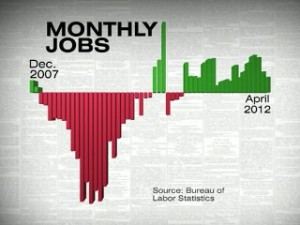Are leaders “born to lead?” Is it part of their DNA? Or, can a person learn leadership? I believe the latter—the attributes and skills that make a leader can be learned.
The attributes necessary to leadership are those that define how a person deals with his or her responsibilities, organizations, followers, and others. These attributes can be described by 5 words,all beginning with the letter C—the 5 C’s.
Also, necessary for leadership is an awareness of one’s behaviors and motivators. Understanding these factors, leads to the skill being able to adapt to the differing behaviors and motivators of others.
The 5 C’s
Effective leaders possess 5 key attributes: convictions, courage, commitment, consistency and connecting. Collectively, these make up the “5 C’s” of leadership and are essential to leading through influence rather than by authority.
Convictions are one’s firmly held beliefs. Effective leaders practice truthfulness, honesty, loyalty and exemplary behavior. They not only “talk the talk,” they “walk the walk;” and, by doing so they set the standard for their followers.
Courage is the ability to act despite fear. Possessing courage of their convictions, effective leaders stand fast in difficult times. They have the courage to innovate; to take risks; to think “outside the box.” Their courage emboldens and empowers their followers to act courageously.
A commitment is a pledge to serve organizations, people or activities. A leader does not take a commitment lightly—through good and bad, he or she “stays” the course; doing whatever is necessary to achieve success.
An effective leader is a consistent leader: not hot today, cold tomorrow or allowing differing standards and rules for different people. Followers know his or her expectations and understand the consequences of not meeting them. By being consistent, leaders create a level of fairness that permeates an organization; setting the standard for how people deal with others.
Effective leaders understand the importance of and work at connecting with others. They practice listening; they manage by “walking around; they take time to recognize achievement and praise success. Effective leaders are empathetic; willing to share joy, disappointment and sorrow.
Practicing the 5 C’s of leadership is observable behavior. People see that a leader has convictions, possesses courage, is committed, consistent and knows how to connect with others. Seeing is believing; believing is doing. How a leader conducts his or herself, sets the pattern of behavior followers will adopt.
Behavior and Motivation
“Behavior” refers to HOW people do what they do. When people are unaware of their “natural” behavior, they can clash with people whose behavior differs: a confident person dealing with a shy person; or, a neat person working with someone who is messy. Behavior is how people respond to:
• Problems and challenges
• Influencing others
• Pace of environment
• Rules and procedures
Behavioral research suggests that the most effective people are those who understand themselves, both their strengths and weaknesses, so they can develop strategies to meet the demands of their environment.
Whereas Behaviors illustrate the HOW of our actions and decision-making, Motivators explain the WHY behind your actions and passions.
People respond to different motivators. For example, some people are motivated by money; others by recognition and others by learning. Motivators are:
- The personal drivers, the “WHY” of what we do
- Influence our decision making
- Are our way of perceiving value, our filters and biases
Motivators are the windows through which an individual views the world. These intrinsic motivations explain the key forces driving someone’s on-the-job performance and why they act a certain way.
An understanding of behaviors and motivations helps to: increase efficiency in teams, reduce turnover, improve communication, reduce workplace conflict and stress, identify best employees and grow them, and hire people ideally suited to the job — creating job match that pleases employers and employees, too.
It’s not easy, but with coaching and training leadership can be learned.
To learn more about leadership training go to www.e3-consulting.net.
 “Business would be easy if you didn’t have to deal with customers and employees.” A tired but true saying my father often muttered after coping with an unhappy customer.
“Business would be easy if you didn’t have to deal with customers and employees.” A tired but true saying my father often muttered after coping with an unhappy customer.
 In Proverbs 6 verses 6 through 19, King Solomon wrote:
In Proverbs 6 verses 6 through 19, King Solomon wrote: